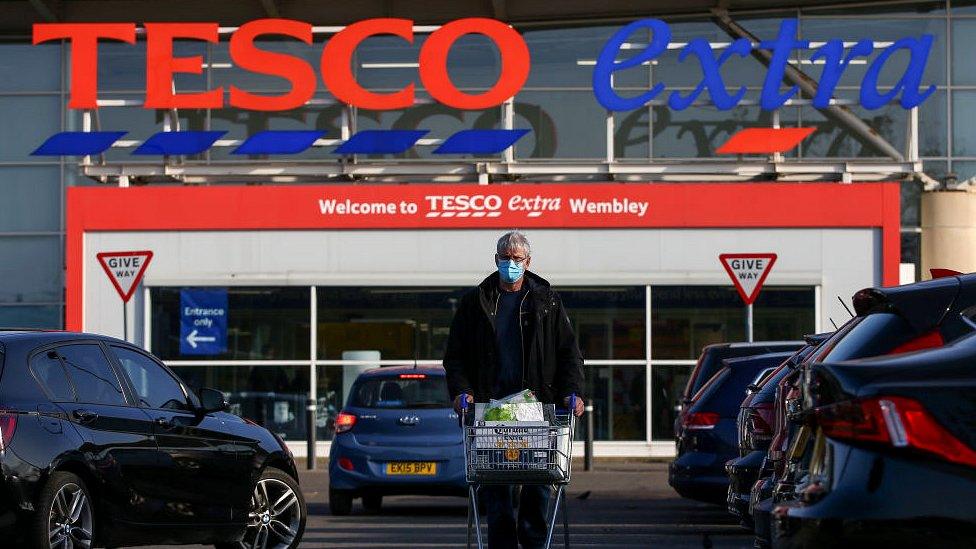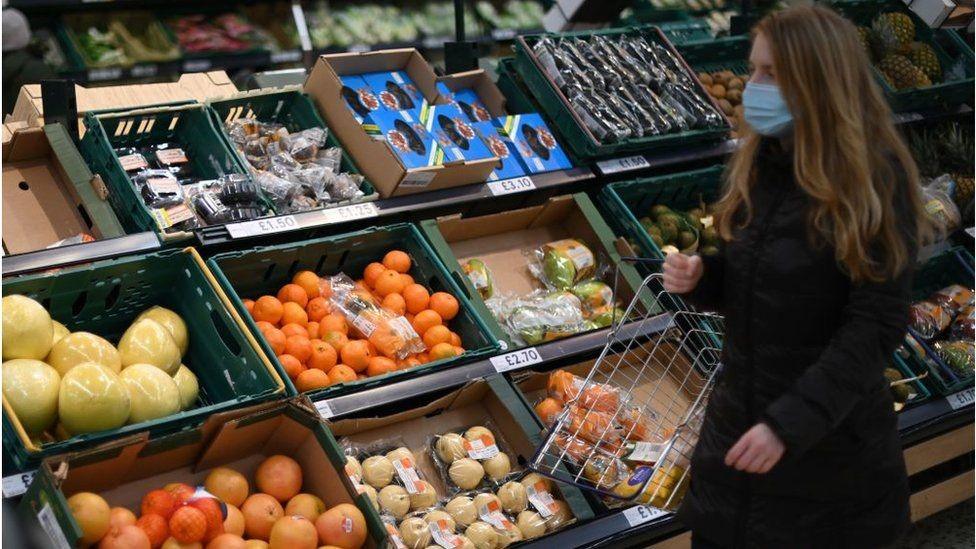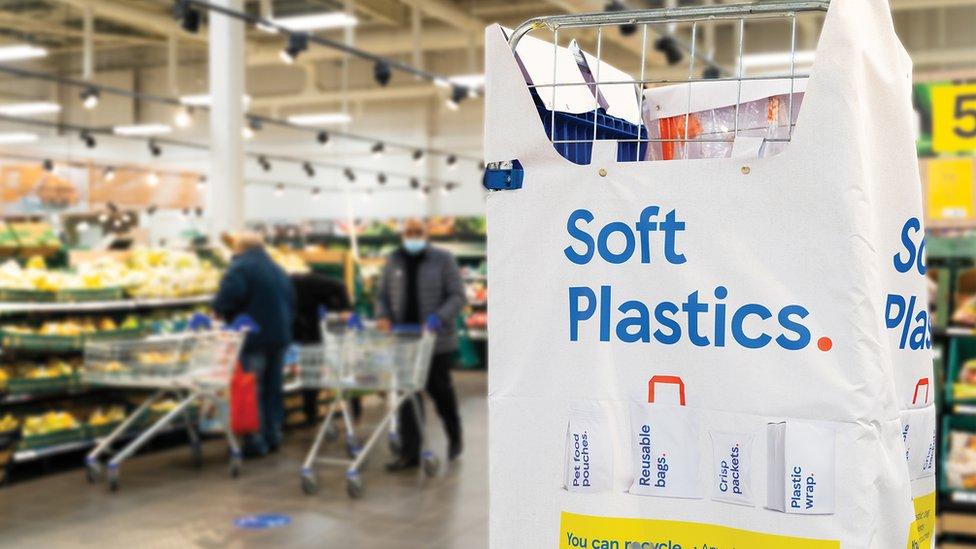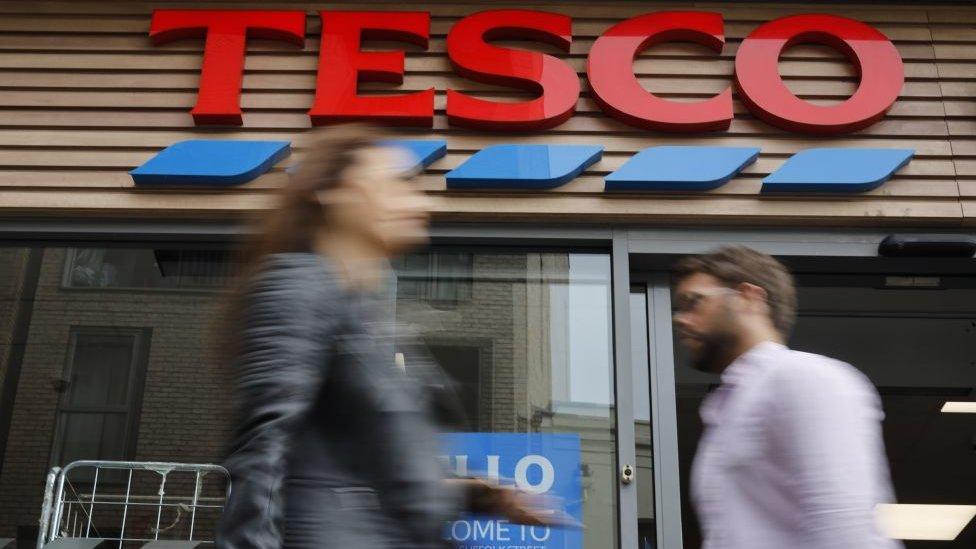Tesco counts cost of Covid trading as profits drop
- Published
- comments

Tesco has announced a rise in sales but a sharp fall in full-year profits after spending nearly £900m to carry on trading through the Covid pandemic.
The UK's largest supermarket said "exceptionally strong" revenue grew by 7% to £53.4bn.
However, pre-tax profits dropped by nearly 20% following a number of Covid-related costs including giving full pay to staff off work ill or shielding.
It also incurred £535m after forgoing business rates relief.
The government announced the business rates holiday last March to help support retail, leisure and hospitality companies through the pandemic.
However, supermarkets are classed as essential retailers and have been allowed to stay open during lockdown. Tesco said it would repay the rate relief following criticism over its decision to pay millions of pounds worth of dividends to shareholders.
Tesco's full year pre-tax profit fell from £1bn to £825m.
Richard Hyman, a partner at the retail consultancy TPC, said that trading through Covid had cost Tesco a lot of money: "In order to [trade through the pandemic] they've had to spend a lot of money looking after the health of both their customers and their staff and that's been very very costly," he said.

Tesco said its strong sales growth was boosted by a 77% rise in online sales. Like-for-like sales, which strips out revenue from shops opened or closed during the year, rose by 6.3% for the group.
The supermarket said that while some of the additional sales volumes would fall away as Covid restrictions eased, it expected a strong recovery in profitability as most of the costs incurred in the pandemic would not be repeated.
It said because of a "greater than usual level of uncertainty around sales volumes, mix and channel shift" it was difficult to predict operating profit for its retail business. However, Tesco said it expected it to recover to a similar level in the previous financial year.
Bank losses
The company also announced a £175m loss at Tesco Bank compared with a £193m profit in the previous 12 months.
It said there had been a "material decline" in customer spending because of Covid, leading to " lower levels of new business activity in loans and credit cards, lower credit card balances, and a reduction in ATM and travel money transactions".
It added: "Higher levels of unemployment and lower GDP forecasts resulted in an increase in the provision for potential bad debts."
Tesco said that while it expected the bank to return to profit in the next financial year, the pace and scale of recovery "is highly dependent on the economic outlook, which remains uncertain".
Tesco's share price fell by 2.65% to 225.96p in early trading.
Related topics
- Published10 March 2021

- Published2 December 2020
